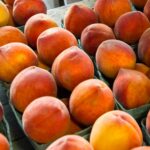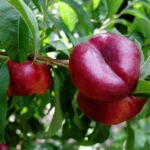Local blueberries can fetch a premium in China, says Costa exec

Last year's International Blueberry Organization (IBO) Summit in Australia allowed the global industry to plant the seeds of new ideas, and now the baton has been passed to Argentina and Uruguay which will hold a joint conference on Sept. 20-22. At www.freshfruitportal.com, we catch up with IBO treasurer Peter McPherson, who is also the general manager for the berry category at Australian company Costa Group (ASX: CGC).
Like many fruit growers McPherson is paying great attention to the growing opportunities in China, but for Costa Group this works on two levels.
Not only is the Australian blueberry industry working on getting the fruit put on a priority list for Chinese market access, but Costa itself has a farming venture with Driscoll's growing on two operations in China's Yunnan province.
At the farms in China, the second year of raspberry production is expected to start in October and the first year of blueberry production is expected to start in December. 
"It’s different in terms of the landscape obviously, but in terms of the growing conditions we see similarities with different areas in Australia," he says
"We've got one site in central Yunnan, and we’ve got a new site we’re just starting to develop now in the south of Yunnan.
"I think what we’ve seen to date is the Chinese consumer has got a huge liking for blueberries in particular."
But the issue in China is that consumers are often willing to pay more for imported products because of their associations with food safety and taste.
Will this be a problem? McPherson doesn't think so, as the Costa-Driscoll's operation will be able to leverage off a combination of the Driscoll's brand, the best variety's including Costa's genetics, and local provenance.
"The product driven under the brand is the best quality in the world - the genetics, the taste factor, comparative to what the competitive offer is on the shelf, it’s a point of difference.
"It’s a competitive advantage that the consumer over there is identifying and paying for," he says.
McPherson says some of the consumer preferences could be seen when Australian blueberry varieties grown in Australia (including Costa's) were allowed into China on a special one-off dispensation quarantine arrangement for the China FVF conference in Beijing 18 months ago.
"We had product up against other South American countries and clearly the Australian-grown product was the premium and the preference in the eyes of Chinese consumers.
"That's the same genetics that’s now being grown in China, and we’ll continue to grow many hectares for the growing footprint in years to come."
These varieties are also grown in the African Blue project in Morocco, while Driscoll’s has exclusivity to Costa's blueberry genetics in the whole of the Americas.
"They're currently growing that in Chile, Peru, Mexico, Florida and California."
Even though China is in the Northern Hemisphere, McPherson does not envisage the Costa JV Chinese blueberries competing against North American blueberries.
"It'll be competing more against Southern Hemisphere later season product like Chile," he says.
This is a dynamic that South American growers will no doubt discuss in Argentina and Uruguay at the IBO conference later this month.
"At the end of the day that’s a fact of life. It's always difficult when you’re exporting from a market that’s so far away that’s got a lot of logistic issues to get to market, and what that does to product quality goes against that grown locally of similar if not better genetics," he says.
The Costa executive says events like the IBO Summit are important for bringing industry players together to cultivate new knowledge and links.
"This is my 30th year in the business and every day you learn something new, so you never know it all, but continuously investing in research and development, whether that be varieties, packing, cool chain, logistics, how you grow and cultivate the product, it’s ongoing.
"The more you network with people in other parts of the world – I call it the cross-fertilization of ideas - the better your outcome is going to be.
"I believe that it will be well-attended – I understand there are Australian growers who will be going along to look at the industry over there, because on the back of the success of last year we keep improving the quality and content of the IBO functions.
"I’ve got every confidence that the Argentine and Uruguayan hosts will only take that up a level from what we’ve achieved in Australia."
The executive adds Australia's per capita growth in domestic blueberry consumption rose 3% in the 2016 financial year, and he expects the level would have been higher if it weren't for hail events that caused losses for around 12% of the crop.
He expects consumption per capita to grow 20% in Australia during this financial year.













































